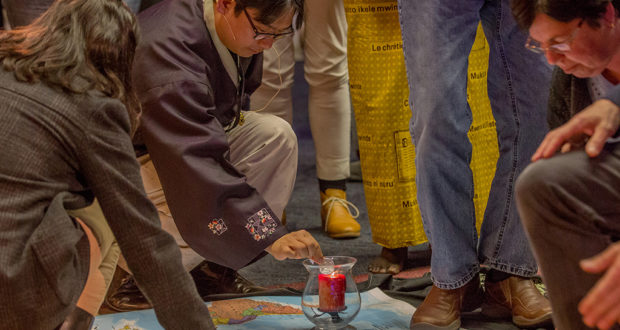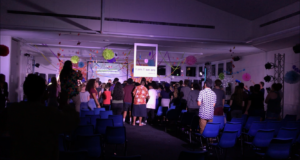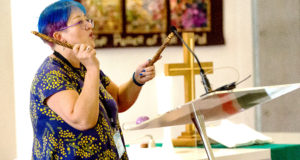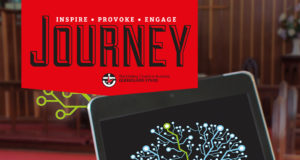This year’s Transforming Worship conference offered participants a great opportunity to explore the formative and transformative nature of Christian worship with like-minded lay leaders, ordained ministers and worship teams. Neil Thorpe reports.
The Uniting Church’s guide for worship, Uniting in Worship 2, speaks of the importance of a healthy diet of worship for Christ’s people and this metaphor is helpful for those who plan and lead worship.
In this vein, the Assembly Worship Working Group and the Assembly Formation, Education and Discipleship group provided a veritable buffet of ideas, practices, and biblical underpinnings in its recent Transforming Worship conference held in late July at the Burnside City Uniting Church, Adelaide.
The keynote speakers—Ruth Duck, Stephen Burns and Mark Pierson—led us through various themed days on “Making Lifelong Disciples”, “Worshipping Communities and Contextualisation” and “Crafting and Leading Worship: Love and Care in the Making of Worship”. Their talks were informative, challenging and hopeful.
There was a wide-ranging menu of electives to choose from, much too numerous to mention here but a veritable feast of choice was provided for participants.
For those seeking a wider sensation of taste, the conference provided a Contemplative Space, Quiet Creative Space, and an installation called “Lingering with Intent” which invited personal reflection and participation in a range of worship stations.
Each day began and concluded with significant and moving worship experiences which inspired and showed us how worship that is focused on God can also be creative, personal and considerate of the needs of those present.
One evening we were invited to worship in the style of Taize. On the next, the focus was on the gifts that many cultures bring to worship—a multicultural feast! On the last evening, members of the Uniting Aboriginal and Islander Christian Congress led the conference in a moving Indigenous-focused worship. On the Sunday, we were offered four worship experiences ranging from so-called “traditional”, “contemporary” to “café church” styles.
Participants were urged to build relationships among people of all ages in worship and to focus upon spiritual formation and discipleship. We were reminded that in our formation as Christians, particularly as it is expressed in worship, that transformation happens through what we do and say repeatedly.
This was not only a conference about worship, it was a conference in which worship was central and experienced and savoured for what it could be like “back home”. It was a great blend of ideas and practical strategies coupled with the experience of encountering God in public and personal worship.
We have dined and the challenge is to continue the healthy menu!
 JourneyOnline
JourneyOnline







